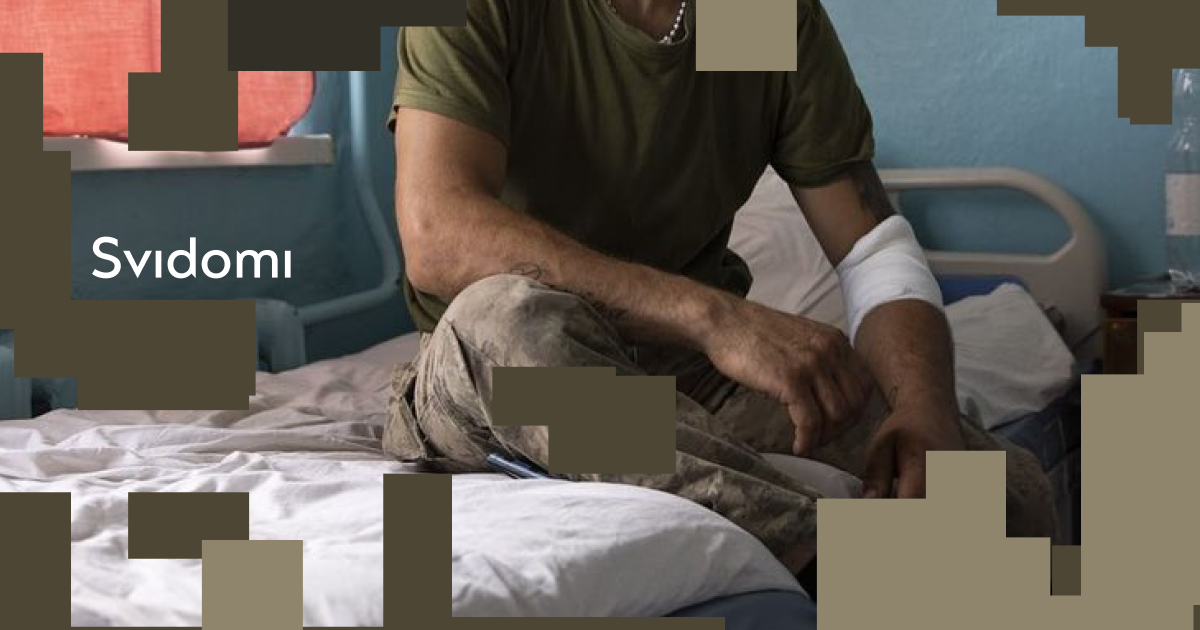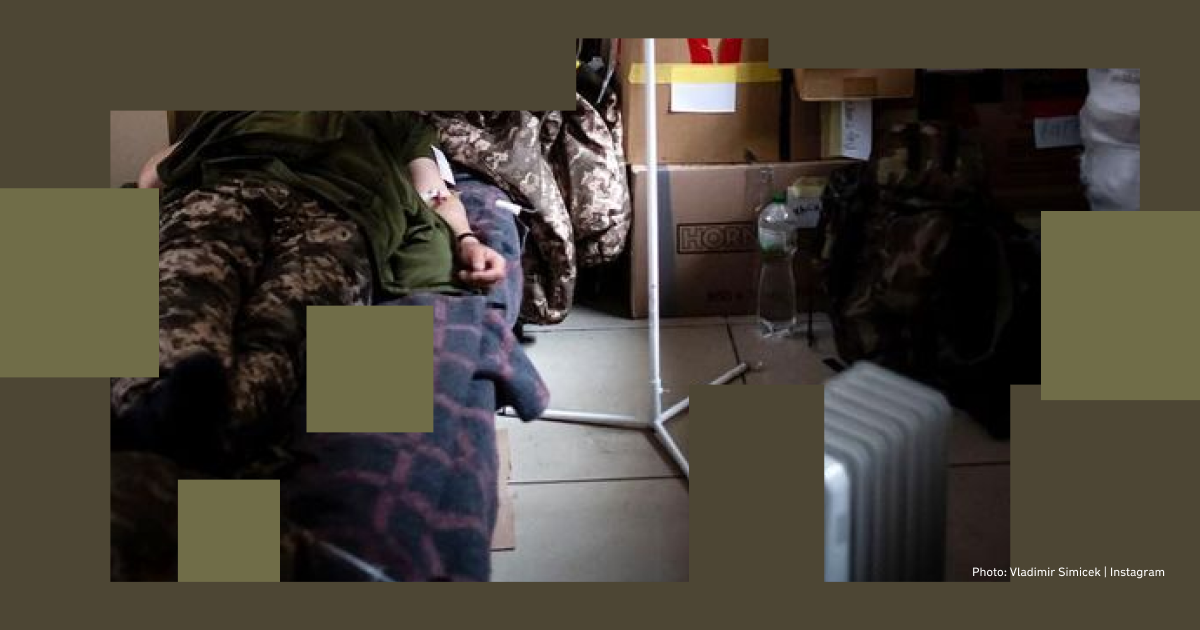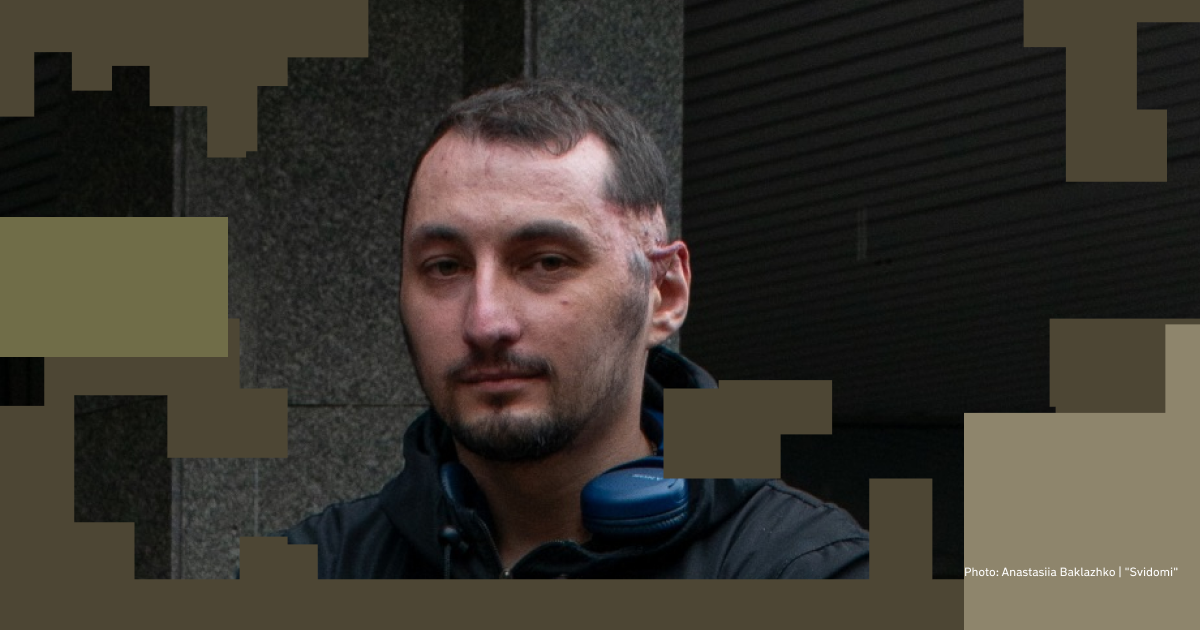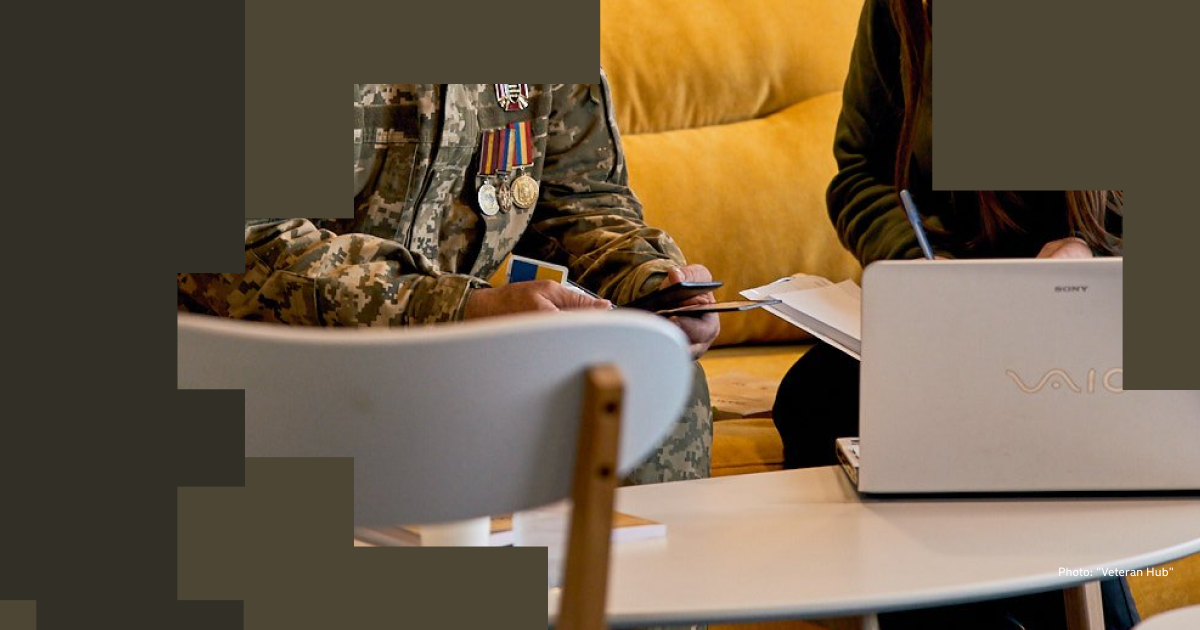Injury experience and psychological rehabilitation

In the literal sense, an injury is a physical trauma, so first of all, the soldiers try to recover physically. However, it is also a traumatic experience for the psyche, and psychological rehabilitation can take just as long as physical rehabilitation. The consequences include impaired cognitive functions, acceptance of a new physical image, feelings of guilt, and fears of new realities.
Together with psychologists, we figure out how to deal with the injuries of loved ones and help them recover psychologically.
Stages of recovery
Military psychologist Tetiana Smirnova identifies two stages that wounded soldiers go through.
The first is acceptance. The shock stage is followed by emotions of pain, anger, fear, apathy, sadness, or disappointment. Smirnova advises relatives and friends to support, not to pity or grieve for the wounded in such moments.
It is better to gradually restore the person's taste for life through care and support, to strengthen their independence, i.e. not to take care of everything, but to give them a choice and communicate as an equal. Communication with fellow soldiers and friends is a great support. It is important not to devalue a person's emotions and to be there for them.
The second stage is to survive the pain, anger, and resentment. The duration of this stage can be different for each person. The psychologist advises making plans with the person, encouraging them to act, returning them to their usual way of life, and discovering new aspects despite the war. Phantom pains can also be a problem. In caring for the wounded, it is important to nurture their resilience and rely on their strength and unique experience.

Maryna Hrebeniuk, a military psychologist with the Women's Power of Ukraine NGO, which provides social and psychological support to families of military personnel, says that recovery usually involves three stages:
- Shock;
- Denial;
- Acceptance.
Among the most generalised types of behaviour during the treatment, she identifies depressive or aggressive behaviour.
Depressive behaviour can be manifested in constant depression, loss of life guidelines, a sense of doom, devaluation of the past experience, alcohol consumption, etc.
Aggressive — both in relation to the injury and to oneself or those around. Aggression can be concentrated and controlled when a soldier manages to direct it toward the fight for their own health and recovery.

Vasyl Protsyshen, call sign Obito, is a soldier with the Azov Brigade. After February 24, 2022, he defended Mariupol, where he was wounded twice. On May 16 last year, at the request of the top military and political leadership to save the lives of the soldiers, the garrison left the Azovstal plant. Protsyshen was taken prisoner and released on June 29, 2022. Now Obito is back at the frontline.
He says that after being wounded, the soldiers start to take more care of their own safety:
This manifests itself even in crossing the road at a red light or in the wrong place. Many of my friends from Azovstal and captivity used to constantly violate traffic rules — they would cut off, break the speed limit. Now they follow the rules and say: 'I survived out there, and it would be stupid to die in some accident'.
How relatives can help the wounded
Tetiana Tsilenko, a psychologist at the Veteran Hub mobile office in the Kyiv region, advises what not to do when you are with wounded soldiers:
- Do not do anything unpredictable or make sudden movements. Do not play loud music, do not approach from behind, and be mindful of personal boundaries and personal space.
- A person with a visible injury, such as an amputation, should not be treated differently from others.
- If you want to help, ask, otherwise it can be humiliating.
- If you are in doubt about the appropriateness of your actions or words, ask directly. After being wounded, especially seriously and visibly, soldiers learn to accept their bodies again. At this stage, the support of loved ones is important. Words like "I'm here for you," "I'm with you," and "I accept you" will be helpful.
- In your sex life, you should take time and be honest with your partner. Discuss what has changed, what to consider, and what ways and forms of sexual satisfaction are available.
- Seeking help from specialists is not a sign of weakness but a way of taking care of yourself and your happiness.

Depending on what unresolved issues were present before the injury, there are specific reactions that will be triggered, said Kateryna Mitchenko, a member of the National Psychological Association of Ukraine and a lecturer at the Department of Humanities and Psychology at the Dnipro State University of Internal Affairs.
For example, a person had a feeling of being unloved and did not feel their own value. After being wounded, they may want to be given as much attention and care as possible. For them, focusing on physical injury will be appropriate. For a person who does not have this need, but rather a need to be an equal member, excessive attention to their injury will cause a negative reaction,
explains Mitchenko.
She advises shifting the focus from the problem to the solution, and when talking about the events of the recent past, creating an atmosphere of psychological and emotional safety, showing empathy, warmth, trust, and understanding.
You should not be afraid to admit that you do not have similar experiences and cannot fully understand what the person has gone through. The main thing is to be ready and willing to provide the support that the wounded person needs. At the same time, you should not pretend that nothing has happened and maintain a balance between not demanding more and not being overprotective.


